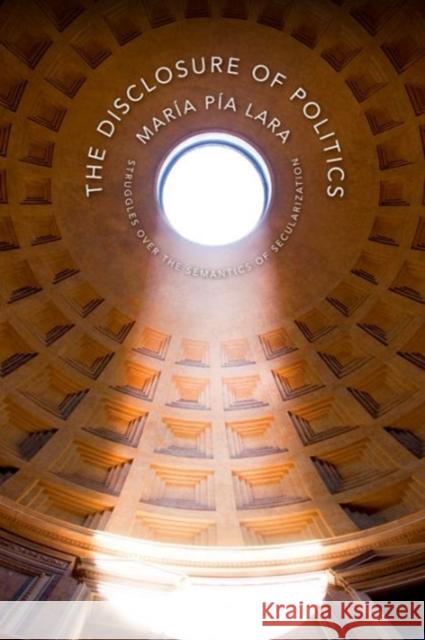The Disclosure of Politics: Struggles Over the Semantics of Secularization » książka
topmenu
The Disclosure of Politics: Struggles Over the Semantics of Secularization
ISBN-13: 9780231162807 / Angielski / Twarda / 2013 / 256 str.
Postmodern political critiques speak of the death of ideology, the end of history, and the postsecular return of religious attitudes, yet radical conservative theorists such as Mark Lilla argue religion and politics are inextricably intertwined. Returning much-needed uncertainty to debates over the political while revitalizing the very terms in which they are defined, Maria Pia Lara explores the ambiguity of secularization and the theoretical potential of a structural break between politics and religion.
For Lara, secularization means three things: the translation of religious semantics into politics; a transformation of religious notions into political ideas; and the reoccupation of a space left void by changing political actors that gives rise to new conceptions of political interaction. Conceptual innovation redefines politics as a horizontal relationship between governments and the governed and better enables societies (and individual political actors) to articulate meaning through action--that is, through the emergence of new concepts. These actions, Lara proves, radically transform our understanding of politics and the role of political agents and are further enhanced by challenging the structural dependence of politics on religious phenomena.










